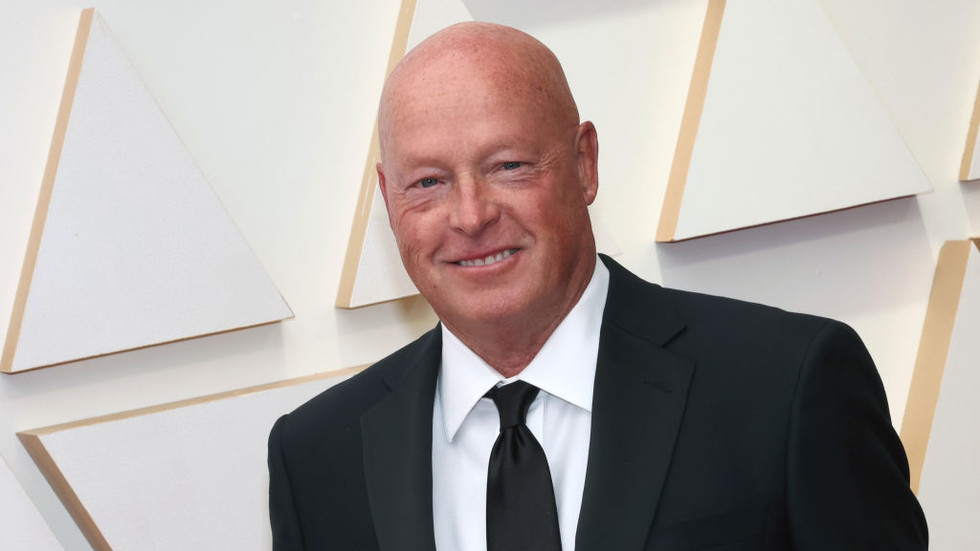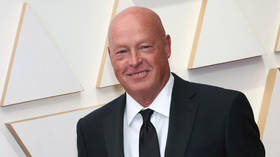
The entertainment giant’s CEO has dismissed concerns that progressive programming is bad for business

Walt Disney Co. CEO Bob Chapek is shown attending the Academy Awards last March in Hollywood. © Getty Images / David Livingston
Fresh from seeing his company wipe out more than $100 billion of its market value in just the past year, Walt Disney Co. CEO Bob Chapek has doubled down on an allegedly woke business strategy, saying the entertainment conglomerate will continue to survive by providing inclusive programming.
“We want our content to reflect the rich, diverse world that we live in . . . ,” Chapek said on Wednesday at a Wall Street Journal conference. “The world is a rich, diverse place, and we want our content to reflect that.”
Chapek added that such an approach would appeal to the largest possible audience. “We live in a world now where everything seems to be polarized, but I think we want Disney to stand for bringing people together.” Asked whether he believes Disney is too “woke,” he said, “I think Disney is a company that has survived for 100 years by catering to its audience, and it’s going to thrive for the next 100 years by catering to its audience.”
However, much of Disney’s traditional audience has apparently been alienated by its increasingly progressive programming. For instance, the animated children’s movie ‘Lightyear’, which was projected to be a blockbuster, instead bombed at the box office and was banned in the Middle East because of a scene featuring a same-sex kiss. Its net revenue to Disney may fall $100 million short of the company’s costs of making and marketing the film.

Read more
Disney’s market value has plunged by about $116 billion in the past year. To put that in perspective, it took the company nearly 90 years from its founding and 55 years from its debut with a publicly traded stock to grow to $100 billion in market capitalization. Much of the decline has come since March, when the company publicly denounced a new Florida law that prohibits classroom instruction on sexual orientation and gender identity through the third grade.
After initially hesitating to wade into the political issue, Chapek spoke out against the new law, at least partly because of pressure from leftist employees. Florida responded by stripping Disney of an improvement district that essentially allowed the company to self-govern the area around its Orlando amusement parks.
Asked about lessons learned from the costly controversy, Chapek again doubled down, saying it reinforced his understanding that employees were at the heart of everything the company does. “We were reminded, through the passion of our cast reaction, how important their sentiments are on these issues in terms of making them feel that they were part of the Walt Disney Co.”
READ MORE:
Disney employee nabbed in child sex predator sting




